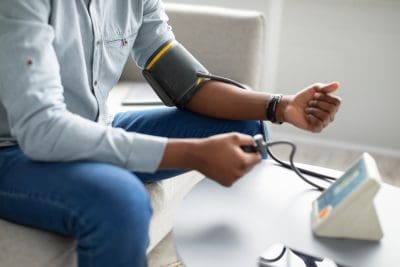Mini strokes, medically known as transient ischemic attacks (TIAs), serve as crucial warning signs for potential severe health issues. While these events may resolve quickly, medical professionals emphasize their significance as indicators of underlying cardiovascular concerns that require immediate attention.
Understanding mini strokes
A mini stroke occurs when blood flow to part of the brain becomes temporarily blocked or reduced, typically by a blood clot. Unlike full strokes, these blockages resolve naturally, often within minutes or hours, without causing permanent damage. However, their temporary nature shouldn’t diminish their importance as serious health warnings.
These events indicate potential cardiovascular issues that could lead to more severe outcomes. Medical professionals view TIAs as critical opportunities for intervention and prevention of full strokes, which can cause lasting disability or death.
Recognizing warning signs
Mini stroke symptoms often mirror those of full strokes but resolve more quickly. Sudden weakness or numbness, particularly affecting one side of the body, requires immediate attention. Speech difficulties, including problems with expression or comprehension, may indicate a TIA in progress.
Vision changes, such as sudden blurring or double vision, often accompany these events. Some individuals experience severe headaches or unexpected dizziness. Even when symptoms resolve quickly, medical evaluation remains essential for preventing future complications.
Understanding causes
Several factors contribute to mini stroke occurrence. Atherosclerosis, characterized by plaque buildup in arteries, restricts blood flow and increases risk. Hypertension damages blood vessels over time, while heart conditions like atrial fibrillation can lead to clot formation.
Diabetes affects blood vessel health throughout the body, including brain circulation. Smoking significantly increases stroke risk through multiple mechanisms, including blood vessel damage and increased clotting tendency.
Immediate response protocols
Quick action following suspected mini stroke symptoms can prevent severe outcomes. Contact emergency services immediately, even if symptoms begin to resolve. Document the timing and nature of symptoms to help medical professionals assess the situation accurately.
Follow-up care with specialists helps determine underlying causes and appropriate treatment plans. This may include neurological evaluation, cardiovascular assessment, and medication adjustments.
Prevention strategies
Preventing mini strokes involves addressing multiple aspects of health. A heart-healthy diet rich in fruits, vegetables, and whole grains provides essential nutrients while supporting cardiovascular health. Regular physical activity improves circulation and helps maintain healthy blood pressure levels.
Blood pressure monitoring and management play crucial roles in prevention. Working with health care providers to establish appropriate medication regimens and lifestyle modifications helps control this significant risk factor.
Lifestyle modifications
Stress management significantly impacts cardiovascular health. Regular exercise, mindfulness practices, and adequate sleep help reduce stress levels. Limiting alcohol consumption and avoiding tobacco use further decrease stroke risk.
Creating sustainable healthy habits requires gradual changes and consistent effort. Support from health care providers and loved ones can help maintain these important lifestyle modifications.
Emotional considerations
Experiencing a mini stroke often causes significant anxiety about future health. These events can prompt important lifestyle changes while also creating emotional challenges. Many individuals benefit from professional support or counseling during this adjustment period.
Support groups provide valuable connections with others who understand these experiences. Sharing concerns and strategies helps many people navigate the emotional aspects of recovery and prevention.
Importance of medical follow-up
Statistics indicate that approximately one-third of individuals who experience mini strokes may have full strokes within a year without preventive intervention. Regular medical monitoring helps identify and address risk factors before severe events occur.
Modern diagnostic techniques enable detailed evaluation of cardiovascular health. Working closely with health care providers ensures appropriate monitoring and adjustment of prevention strategies.
Conclusion
Mini strokes represent serious warnings about cardiovascular health that require immediate attention and ongoing management. Understanding their significance, recognizing symptoms, and taking preventive action can help avoid more severe outcomes. Through proper medical care and lifestyle modifications, individuals can significantly reduce their risk of future events.
Success in preventing serious strokes often depends on responding appropriately to these warning signs. By treating mini strokes as important health indicators rather than minor inconveniences, individuals can work effectively with their health care providers to protect their long-term well-being.
This story was created using AI technology.












